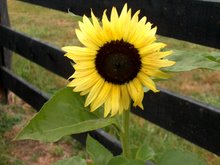Listed below are some tips to help you make the most out of the food you buy and the experience you enjoy, (they are not in any particular order). If you have any more to add, please let us know.
- When was this picked?- Usually farmers pick their produce the day before or the morning of the farmer’s market. Knowing when it was picked will give you an idea of how ripe it is. Generally speaking, farmers want to harvest produce when it’s perfectly ripe, so you shouldn’t have to wait very long before you can eat it. It’s not a bad idea to ask. Also here is a guide on how to choose perfectly ripe fruits and veggies.
- Where’s the farm?- This is another important question to ask. Our assumption is that all the food at the farmers market was grown locally. This is not always the case. If the food was trucked in from hundreds of miles away, then shopping at the farmers market will be no better than shopping at the supermarket.
- Organic- Not all the foods at the farmers market are organic. The best practice is to ask. Many times, local farm representatives will tell you that their food is "organic," despite the fact that they do not carry a "certified organic" label. The reason behind this is that for some small farms these certifications cost a lot of money that can prove financially prohibitive. In general I trust the farmers at the market, and in most cases, I think their hearts and practices are in the right place. If they say their produce is organic, I believe them. However, even if the food is not organic and was grown conventionally (using pesticides and fertilizers) and locally, this is still a good thing and definitely the next best choice in environmentally friendly agriculture. You may just want to subtly ask your farmer if they have plans to go organic in the future.
- Sustainable- If you’re interested, you can ask your farmer if they perform crop rotations and employ bio-diversity on their farm. These practices usually help the farm become a closed loop where the plants, animals and soil all benefit from each other.
- Are those free range eggs- There is a stand at our farmers market that sells eggs. If yours has one also, it may not be a bad idea to ask all of the above plus whether the chickens are allowed to roam about freely. I noticed the last time we were at the market the egg stand put up a sign that listed all of these answers, so they must get these questions frequently.
- Is it in season- Because most food at the farmers market is grown locally, generally it’s in season. Just in case you are curious, here is a link to check what’s in season in your area.
- Recipes and Storage- Who better to ask how to prepare and store the food than the person that grew it? Farmers usually enjoy the produce they grow and have some good tips and tricks on cooking it and making it keep for awhile. Who knows, you may even walk away with an old family recipe.
- Create a list, and get those items first- Sometimes the excitement of the farmers market can send us into a buying frenzy…I think cheap, fresh food has that effect. However, stick to the list. If you’ve got your meals planned out for the week, get those necessary ingredients first. After that, you can check out some other treats. The key is not to buy so much food that it spoils before you can eat it. Since most of the produce is ripe when you buy it, it’s shelf life is probably only a few days.
- Give the kids a couple bucks- Let them choose and purchase some fruits and veggies on their own. You never know, they may be more inclined to actually eat the healthy items that they picked it out and paid for.
- Bring your own bags- Globally, we use 1 million plastic bags per minute. They fill up our landfills, open spaces and oceans. If you take one thing away from this post, let it be this, please use reusable bags to help reduce this number.
Overall, these tips should help you make an educated decision on the food you are about to buy. You’ll probably only need to ask them once, as you’ll purchase from the same farmers from week-to-week. After awhile, you will get to know them and they will usually take special care of you in pointing out the best produce and give you more tips and suggestions.
Happy shopping!












